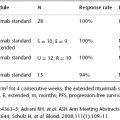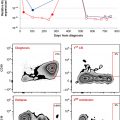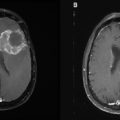Metastatic Esophagogastric Cancer: Controversies, Consensus, and New Targets
Memorial Sloan Kettering Cancer Center, New York, NY, USA
• What is the optimal first-line chemotherapy regimen for advanced esophagogastric cancer?
The combination of infusional 5FU and cisplatin has been studied extensively since the 1980s, and the doublet of a fluoropyrimidine with a platinum compound remains a reference regimen in many contemporary trials. This doublet is associated with response rates (RRs) of up to 40%, median progression-free survival (PFS) of about 6 months, and median overall survival (OS) of 10–12 months.
More contemporary trials have evaluated substitutions of both of these drugs with either an oral 5FU prodrug (capecitabine or S1) and/or the newer platinum compound oxaliplatin. Regimens such as S1–cisplatin, capecitabine–cisplatin, infusional 5FU–oxaliplatin, and capecitabine–oxaliplatin (along with the anthracycline epirubicin) appear to have at least comparable efficacy compared to 5FU–cisplatin and are also mostly associated with decreased toxicity and increased ease of administration. An individual patient data meta-analysis of two randomized trials that compared capecitabine-based with infusional 5FU-based regimens—the capecitabine–cisplatin versus 5FU–cisplatin trial and the REAL-2 (Randomized ECF for Advanced and Locally Advanced Esophagogastric Cancer 2) study discussed in this chapter—suggested that capecitabine-based treatments are associated with superior RRs and OS compared to infusional 5FU regimens.
A contemporary and commonly used regimen is the FOLFOX regimen (bolus and infusional 5FU–leucovorin–oxaliplatin), which is widely used for treating colorectal cancer. Support for the use of this regimen comes from a phase III trial that compared infusional 5FU–cisplatin with a similar infusional 5FU–oxaliplatin regimen (the German FLO regimen). This trial demonstrated reduced toxicity and comparable outcomes for the FLO regimen in the overall intention-to-treat population. In patients >65 years old, the FLO regimen was also associated with superior outcomes.
Outside of a clinical trial and in patients whose performance status does not permit for a triplet regimen (as discussed in this chapter), our standard treatment is FOLFOX chemotherapy. We generally prefer to avoid capecitabine-based therapy based on the often poor tolerance of this 5FU prodrug in US patients. However, in patients for whom placement of a central catheter or infusional 5FU is not an option, capecitabine is a reasonable alternative. However, its usage in the United States requires dose reductions in published protocol regimens conducted largely in Europe and Asia.
• Is there benefit for adding a third drug to this doublet?
The only trial that has shown a clear benefit for adding a third drug to the standard fluoropyrimidine–platinum doublet is the V325 study, which randomized patients with gastroesophageal (GE) junction and gastric adenocarcinomas to the DCF regimen (docetaxel–cisplatin–infusional 5FU) versus infusional 5FU–cisplatin. The addition of docetaxel improved RRs (37% vs. 25%; P = 0.01) and time to progression (5.6 vs. 3.7 months; P < 0.001), but OS was only slightly improved (median OS: 9.2 vs. 8.6 months; 2-year OS: 18% vs. 9%; P = 0.02). In addition, the three-drug regimen was associated with significantly more toxicity, including a grade 3/4 neutropenia rate of 82% (vs. 57%) and febrile neutropenia in 29% of patients (vs. 12%). Fifty percent of patients came off treatment due to either severe adverse events or consent withdrawal. Despite these significant toxicities, the authors reported a slower decrement in quality-of-life measurements in the DCF arm. On the basis of this study, docetaxel was approved by the US Food and Drug Administration in 2006 for use with 5FU–cisplatin in this context.
Several investigators have attempted to modify the regimen to increase tolerability. For example, our group performed a randomized phase II trial of a parent DCF (with prophylactic growth factor support) versus a modified DCF (mDCF) regimen (consisting of reduced doses of docetaxel and cisplatin administered with a bolus and 2-day infusional 5FU and leucovorin). mDCF was associated with decreased toxicity compared to parent DCF (neutropenic fever rate: 6% vs. 17%; grade 3–4 nausea and vomiting rate: 3% vs. 20%), while activity appeared comparable or even superior in the mDCF arm. Nevertheless, 30% of the patients receiving mDCF (who had a median age of 56 years) required hospitalization for treatment-related toxicities, reinforcing the notion that this remains a relatively difficult regimen to administer.
Many oncologists reserve three-drug therapy for younger, good-performance-status patients without comorbidities, who accept the risk of greater toxicity of therapy and who have frequent access to toxicity evaluation. A recent trial in patients ≥65 years old comparing 5FU–oxaliplatin to docetaxel–5FU–oxaliplatin found increased toxicity but no improvement in outcomes in the subgroup with metastatic disease.
In the United Kingdom, the reference regimen since the late 1990s has been the ECF (epirubicin–cisplatin–5FU) regimen. More recently, the REAL-2 study compared the ECF regimen to the ECX (which involves the substitution of 5FU with capecitabine), EOF (the substitution of oxaliplatin for cisplatin), and EOX regimens (a double substitution of both capecitabine and oxaliplatin) in patients with advanced esophagogastric adenocarcinomas or squamous cell carcinomas (SCCs). All the combinations had similar RRs (40–48%) and toxicities, and the EOX regimen was associated with improved median OS compared to the ECF regimen (11.2 vs. 9.9 months; P = 0.02), leading the authors to propose that the EOX regimen could replace ECF in future trials.
Despite the standard use of ECF or one of its derivatives in the United Kingdom, the clear superiority of this triplet over a fluoropyrimidine–platinum doublet has never been demonstrated in a randomized fashion. One piece of evidence frequently cited to support the incorporation of an anthracycline comes from a Cochrane meta-analysis, which analyzed three individually negative trials, including a negative evaluation of ECF versus MCF (mitomycin–cisplatin–5FU). Combining all three trials revealed a survival benefit for the addition of epirubicin (HR: 0.77; 95% CI: 0.62–0.91), which translates into an approximate 2-month survival advantage. However, this conclusion comes largely from the comparison of ECF versus MCF since that trial contributed two-thirds of the patients to the meta-analysis. Given the greater toxicity noted on the MCF arm and the fact that the comparison is not purely between an 5FU–cisplatin-only arm at identical doses and ECF, a determination of the relative merits of adding epirubicin remains difficult to make.
Continuing questions regarding the benefit of an anthracycline were raised by the results of the randomized phase II CALGB (Cancer and Leukemia Group B) 80403–ECOG (Eastern Cooperative Oncology Group) 1206 trial, which randomized 245 patients to one of three chemotherapy regimens—ECF, FOLFOX (biweekly bolus and infusional 5FU–leucovorin–oxaliplatin), or cisplatin and irinotecan—along with cetuximab, a monoclonal antibody against the epidermal growth factor receptor (EGFR), for patients with advanced esophagogastric adenocarcinomas or SCCs. Both the ECF and FOLFOX regimens plus cetuximab produced RRs of >40% (58% and 51%, respectively), which met the primary objective of the trial. However, PFS and OS were nearly identical in both of these arms, and the FOLFOX–cetuximab regimen was associated with less overall grade 3–4 toxicity than the ECF–cetuximab regimen. Of course, the randomized phase II nature of this study was not designed to detect a survival difference between these regimens, and the contribution of cetuximab cannot be determined. Nevertheless, the results of this trial do support the contention that any benefit of an anthracycline, if there is any benefit at all, is likely to be small.
Based on these data, it is rarely our practice to use an anthracycline-containing regimen in the metastatic setting. For select patients who have good performance status, we do offer therapy with the mDCF regimen.
• Should first-line chemotherapy be continued until progression or stopped after 4–6 months?







